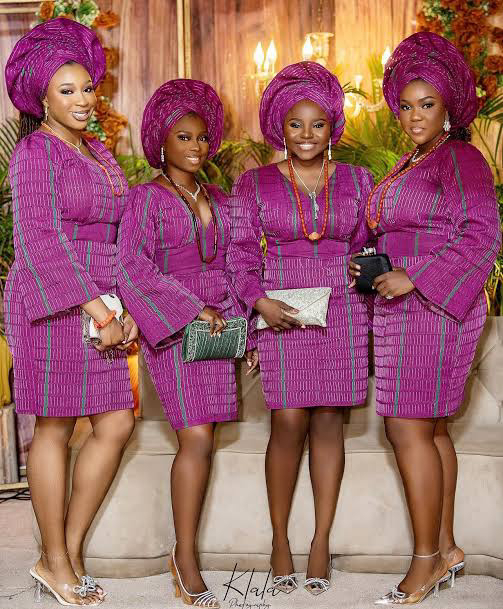Corsets: The New Owanbe Aesthetic
Fashion trends are like pages in a book, easily flipped forward or revisited. This is evident in the growing popularity of corsets in the Nigeria's fashion mainstream. Corsets originally came from Europe, where they were worn by women to create an elongated figure. The Nigerian fashion industry, known for embracing and adapting foreign styles, has now fully embraced the corset trend.
Over the past three years, corsets have become a staple at almost every owanbe, with women wearing them as part of their lace or aso-ebi outfits. Despite initial concerns about discomfort, their popularity continues to rise. Today, many fashion designers incorporate corset elements into traditional attire, merging structure with elegance.
There is growing curiosity about why corsets continue to dominate mainstream fashion despite their discomfort. Some women wear them for the tiny waist silhouette they create, an effect often compared to that of a Brazilian Butt Lift (BBL), but without the need for surgery. Others say corsets boost their confidence and enhance their self-esteem.
Personal Experiences with Corset
Oyinkansola Hilary, a 400-level student in the Department of Communication and Language Art, shared her experience wearing a corset:
"I was happy to wear a corset because it elevated the look of my outfit. In terms of discomfort, on a scale of 1 to 10, I’d say it was about a 4. That’s because I got to choose how tight I wanted it to be. I made sure it wasn’t something that would make me uncomfortable throughout the day."
Faith*, a dental student at the University of Ibadan, also spoke about her corset journey:
"Wearing a corset dress really makes you feel snatched and elevates your look, especially when you're getting compliments. It’s amazing to see how good you look in pictures, but confidence tends to end when you have to sit down, depending on how tight the corset is. I didn’t regret wearing corsets in general, though my first corset dress was a challenge. It wasn’t adjustable, so I struggled to eat at a dinner because of how tight it was. That was my only regret with it. Fashion-wise, though, it was a win—the pictures were great, and I looked amazing."
On the discomfort scale, she added:
"On a scale of 1 to 10, where 10 is the most comfortable and 1 is the least, my first corset dress was probably a 4. But over time, I learned to get corsets tailored in a way that allowed me to adjust the tightness to my comfort level. However, no matter how adjustable the corset is, you have to cinch it properly to get that snatched look. If it’s not tight, it loses that effect— especially in pictures. So, even with the adjustments, corsets will never be completely comfortable."
While health concerns have not been widely reported, corsets seem to contradict the spirit of the typical Nigerian owanbe, a celebration known for eating, drinking, dancing, and enjoyment. Many fashion houses believe the corset trend will eventually fade away, much like the once-popular Oleku.
However, with celebrities consistently endorsing the look at parties and on red carpets, corsets might be here to stay a little longer.
The asterisked name is a pseudonym used at the interviewee's request for anonymity
Adeniyi Oluwadamilola Joy







Post a Comment